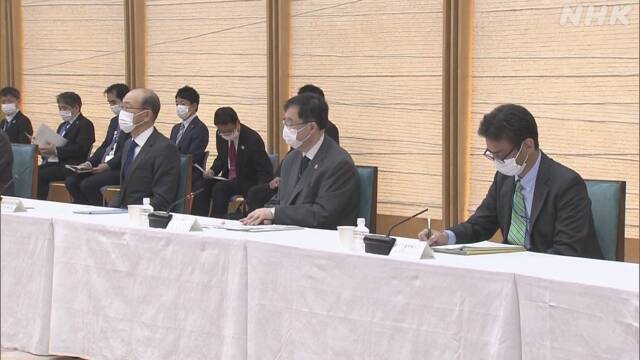Requesting an agreement from the "host town" municipality and the team to comply with infection control November 12, 16:23
Regarding the "host town" that accepts pre-camps for foreign athletes and conducts exchange programs for the Tokyo Olympics and Paralympics, the government has "accepted" each local government to thoroughly prevent infection with the new coronavirus. We decided to make a "manual" and ask the team to exchange an agreement to comply.
For the Tokyo Games, 507 local governments nationwide are registered as host towns, and the number of countries and regions with which they engage in exchange programs is approximately 180.
At the meeting to discuss infection control at the Tokyo Games held on the 12th, the government will prepare an "acceptance manual" for each local government that accepts the team to thoroughly prevent infection, and the team will comply with it. I decided to ask for an agreement.
In addition, a guide that guides the preparation of the manual is also shown, in which the local government prepares a itinerary that describes the place of stay and the movement route of the team, sets the action rules, and the means of transportation and the practice venue As a general rule, it is reserved, and the accommodation will take measures to avoid contact with people other than the team, and prepare to speak a foreign language in case of suspicion of infection.
Furthermore, since there are many restrictions on exchange activities between the team and residents before the tournament and the content of the activities is limited, it is recommended to interact after the competition or after the tournament.
Host Town seeks infectious disease control
In the host town that welcomes foreign athletes, there are already sites where the partner country is requesting measures against infectious diseases, and the search is continuing.
Of these, in Otsu City, rowing competitions are actively held in Lake Biwa, so last year we decided to accept a pre-camp for the New Zealand team, and the executive committee made up of the city and athletes will take the lead in making preparations. I have come.
According to the executive committee, it was the infectious disease control that was strongly requested by the New Zealand side when accepting.
Pre-camping in Japan, where the living environment is different for athletes in the Southern Hemisphere, increases the risk of infectious diseases, so it was reported that they wanted to avoid contact with the citizens as much as possible so that they could exert their best power in the actual camp.
The most troublesome thing for the executive committee to meet these demands was securing accommodation.
We secured a hotel near Lake Biwa because we were asked to prepare a place close to the practice area without contacting general guests when eating or entering the hotel, and we have had close meetings with the hotel side. I did.
In addition, at the Lake Biwa clubhouse, which players use to arrive and depart boats, we decided to take measures such as clearly dividing the time used by general users and the team.
However, this spring, the hotel management company went bankrupt due to the spread of the new coronavirus infection.
The executive committee is forced to look for new accommodation.
In the future, we will continue to search for infectious disease countermeasures based on the policies announced by the government and the Games Organizing Committee.
Hiroshi Sugito, a former Japanese national team player on the boat and the secretary-general of the executive committee, said, "I was surprised to learn that foreign players were highly aware of infectious diseases even before the spread of the new coronavirus infection. I thought I was ready, but I had to look for a new hotel. It's annoying because I need to reconcile the measures. "

